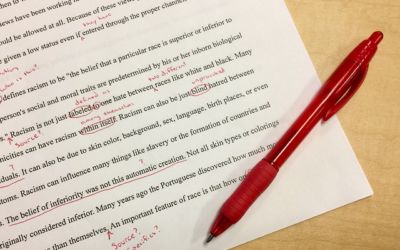Questions are created by changing the word order statement It will rain tomorrow He will say goodbye tomorrow at the pub. by placing the auxiliary before the subject, we create a question question Will it rain tomorrow? Will he say goodbye...
Business English Blog
Legal English: explicit differences
Often when used in a legal context, vocabulary can focus on a different meaning which is tacit to the legal context it is being used. Below are some examples which have familiar uses in day to day English but we will provide some examples in a legal context. Let's...
Comparative phrases using ‘as’ ‘much’ ‘many’ positive and negative
When something or someone is similar to something or someone else we can use as with an adjective Your cooking skills are as awesome as mine. We were as surprised as each other when the wall blew over. we can use as with an adverb If only the new...
Phrases with time
Beyond telling the time, there are expressions we use that are very useful and common to have time to kill [to have spare time] I am sitting here in the garden because I have time to kill. If you have time to kill, come around for a beer. We had...
Phrasal verbs with UP
UP in phrasal verbs can mean a number of things. Remember, phrasal verbs are a combination of words such as a verb and an article which together provide a meaning which is different to the individual words. UP can mean an upward movement or increase ...
measurements: imperial, metric
The UK and the US commonly use the imperial system to measure size and distance. The rest of the world tend to use the metric system. examples of imperial and metric [approx] 1 mile = 1.61km [kilometres] 1 stone = 6.35kg [kilograms] 1 pound =...
Giving opinions: not sounding offensive and making generalisations
Giving Opinions Imagine a world where everybody just said what they wanted about everything: People take things to seriously. Builders and lawyers cost too much. I didn't like the food you made for me. Shut the door! Whilst there are times when it...
Preposition use with adjectives
Prepositions change from language to language. Rather than have a general rule or pattern to follow, we often have to remember what they follow. Here we focus on the adjectives that they can follow. Adjectives followed by OF At this time, we are unaware...
Formal and informal register
Situation and circumstances determine the expected register of language. Formal When we need to speak with care. This is an impersonal way of speaking often with long words and accurate grammar. We may use formal English when constructing a legal...
Having a discussion: key phrases
Today is the day! The meeting has started, everybody is ready. What is decided here will change the direction of the company, maybe even my position or of my colleagues. The meeting starts at 0900am, sharp. There are sixteen of us, many ideas; some good...
New vocabulary: Meaning from context
Generally the aim clearly of English classes is to learn how to speak English as well as well as possible. Part of the journey is being able to establish the context of words which maybe do not know or understand. Can you guess the meaning the meaning of the following...
Double meanings: what do you mean?
Like in many other languages, there are expressions, words and phrases that have more than one meaning; their meaning depends on the context. dawn (noun/verb) dawn - the beginning of the day (noun) I wake early every morning and go to the woods...
Communication problems
"The most important thing in communication is to hear what isn't being said" - Peter Drucker What does this wonderful sentence mean to you? People often talk about also listening to what is behind what is being said. These sentences arguably mean the same thing....
Business idioms
Idioms - definitions A group of words in a fixed order that have a particular meaning that is different from the meanings of each word on its own The style of expression in writing , speech or music that is typical of a particular group or person etc We...
Simple or continuous; whats the difference?
Generally speaking we use the simple present to describe the general situation I work at home She likes cars They speak English well we use the present continuous to describe something happening right now or is happening 'around' this time ...
Leaving and taking messages
Imagine either making a call or receiving a call for someone and they are not there: Hello could I speak to 'John' please? the response could be: I am sorry John is not here.. Can I take a message? Shall I tell him you called? Would you...
Work expressions
There are many expressions that we use either at work or to do with work. Below we will look at some, explain their uses and provide some examples: Many people work in a dead end job (informal) If someone works a dead end job, They have a job...
Contract formation
A significant key to contracts is formation. Formation The common formula quoted for a contract is offer + acceptance + consideration = contract Consideration is value of something given in return for something. Commonly money,...
TOLES exam dates 2020
Test of Legal English Skills (TOLES) is a structured course of legal English. The exams are available at three levels allowing students to meet levels of the legal English required by employers in the field. All material has been developed by lawyers and...
talk, speak, say, ask, tell ….
TALK Firstly, talk is a verb that simple describes the action of moving one's mouth and producing words. Talk suggests a conversation or discussion Students like to talk in English. Feel free to talk amongst yourselves while we are waiting to...
Pronunciation: heteronyms
Heteronyms are words that are spelt the same as other words but they sound different and have different meanings. live (verb/adjective) I used to live in São Paulo. (verb) - /lɪv/ The game is live on TV at 8pm. (adjective) - /laɪv/ tear...
What formations are followed by infinitive or ‘ing’?
There are situations where it is possible to use either 'ing or the to + infinitive. For example after begin and start we can use either: I began eating/to eat my dinner before I finished cooking it. Before they start complaining/to complain, they should...
Body idioms
What is an idiom? An idiom or idiomatic expression consists of words which have a different meaning when used altogether. We use idioms in informal situations to explain an opinion, idea or maybe make a joke. To play something by ear If you...
‘Thinking’ phrasal verbs
What are phrasal verbs? Phrasal verbs consist of a verb and preposition or adverb. Phrasal verbs have different meanings to when the words are translated separately. We use phrasal verbs everyday, as they don't translate easily, they need to be remembered....
Relative pronouns (2): who, which, that, where, when, whom, whose
Relative pronouns are used to connect a clause or phrase to a pronoun.The clause modifies or describes the noun. The relative pronoun used depends on the noun it is referring to. I know someone whose car looks like it's been in a hay bale (see above)!...
Reported and direct speech
Direct speech describes the exact words that is said or written by someone. When written, direct speech is normally written inside quotation marks: 'do you understand the above?' 'does that make sense?' 'I understand this' Reported speech ...
The difference between ‘until’ and ‘by’
Take a look at these sentences I need to do this until September 30th. They will send this until the end of the day. Your tax return needs to be done until the end of March. All these sentences communicate deadlines, but there is a level of...
Comparatives and superlatives: rules and use
This can cause difficulty for learners as not all languages make a distinction between comparatives and superlatives. In English, there are rules which we visit below. comparatives are adjectives and adverbs that end in 'er' In December it is winter...
Money Expressions
Money is something we all need and use and we have many words and expressions that we use when we refer to it. easy money (money obtained for little work or from immoral conduct) Sheila enjoys making cakes and makes a lot of money doing it. She says that the...
Procedural steps
Present Perfect
Adjectives created from nouns: prefixes/suffixes and word order
Adjective forms can be created from some nouns and verbs by adding a prefix or suffix. prefixes (in)tangible Tangible evidence is obtained from reliable sources. Intangible assets cannot be touched. These include copyright, trademark and goodwill....
Salutations and Letter Writing
The salutation depends on who the recipient is: 'Dear Sir or Madam/Dear Sirs' Law firm or company 'Dear Sirs' 2 men, names unknown 'Dear Mesdames' 2 women, names unknown 'Dear Sir or Madam' Name and sex unknown 'Dear Madam' Woman,...






























